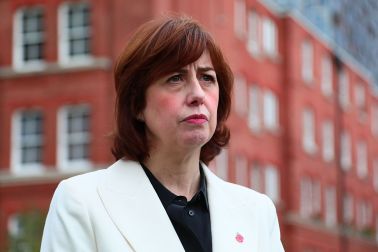Which do you think are the issues that tend to dominate MP’s postbags? Brexit? Immigration? The state of the NHS? All likely contenders – but a more surprising suggestion might be the state of Britain’s broadband service. Up and down the country people struggle to get a decent connection – something that in the 21st century has become almost a vital part of running a company, doing schoolwork, or even doing the shopping.
The Countryside Alliance, for one, has long been urging the government to make fixing the state of our rural broadband a priority – but it’s not just in rural areas that people complain about poor internet. In large towns and urban areas, the internet is sometimes just as bad as out in the country. Business organisations, consumer groups, tech clusters and charities have all voiced increasing concern over recent years. Some people have even gone so far as to set up their own local internet services, in despair at ever being able to get a decent connection through the usual routes. So what exactly is the problem with Britain’s internet – and what can be done to fix it?
One of the main issues is that broadband in the UK depends on the national network, which is controlled by BT through its Openreach division. They’re funded by both the taxpayer and by other broadband providers to keep the network up and running and in good nick – but many argue that they aren’t doing what they’re paid to do. BT simply haven’t invested the amount that they ought to have done in Openreach over the last decade – despite having earned £4bn in excess returns and received a taxpayer subsidy of £1.7bn over the same timeframe. The result is the poor internet services that we see today, and a national network that is heading towards failure.
So, can anything be done about the situation? Well, yes – we do have a chance to do something. Every ten years, Ofcom, the independent regulator for the broadcasting, telecommunications and postal industries (which includes broadband) reviews the market. That review is happening now. At the end of July, Ofcom proposed certain changes to the national structure, including making Openreach a legally separate company from BT, with its own board, independent branding, and greater consultation with its customers. This is a step in the right direction – but many think that Ofcom simply aren’t going far enough in encouraging BT to sort out the many issues with the network.
Fortunately, Ofcom are now seeking views on their proposals – meaning that now is the time to make your views on the UK broadband system known. If people don’t, there might not be a chance to change the set-up for another decade. BT has rolled out pure fibre networks to just 1% of the UK. That compares to around 60% in rival European countries like Portugal and Spain. Britain even trails behind Hungary, Slovakia, Uzbekistan and Mexico. Pure fibre is up to 100 times faster than copper, and much more reliable – for example, it’s totally unaffected by rain. Falling so badly behind simply isn’t acceptable, especially in a post-Brexit world where the UK is going to need to compete fiercely in a digital global marketplace. It’s up to the customer – that is, any Brit who wants a good broadband service – to make this clear to Ofcom.
This is why the new campaign, #FixBritainsInternet, is so important. If you’re one of many people across the country who feel like you’ve been complaining for years about your dire internet, now you can use your voice to help get the root of the problem sorted. The government talk about promoting rural businesses; enabling people to work and run their companies from anywhere in the country. But without good, working broadband, that simply isn’t possible.
Unfortunately, because the national broadband network is owned by one company, in many cases not even your broadband provider can do much about the poor internet service that exists in this country. Britain depends on Openreach and its ability to deliver decent internet. Over the last ten years, the lack of investment has meant that in terms of pure fibre connections – which Ofcom describe as ‘the future’ – the UK lags far behind much of the rest of the world. TalkTalk, for one, believe that this is a ‘national embarrassment’ – but they’re far from the only ones who don’t think that Openreach are delivering. People across the country agree – and #FixBritainsInternet is our chance to let Ofcom know, and encourage them to take our views into account. This is a once in a decade chance to make sure that all of Britain gets the broadband infrastructure it deserves. We can’t let it pass us by.
This piece follows a Spectator-hosted discussion on the future of Britain’s internet, sponsored by TalkTalk Plc.






Comments